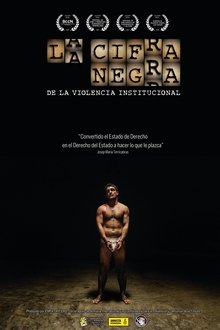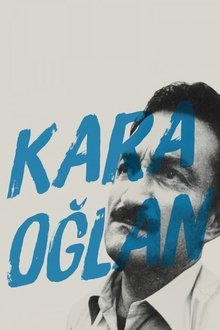Demirkırat stumbled on March 12, 1971. Actually, you know, they shoot limping horses. But this time it didn't. Turkish democracy continued to run despite its wounds. Because March 12 was not a "seizure" but a "warning". The generals were saying, "If what we want is not done, we will seize it." The country was entering a new era under this Sword of Damocles. A president who was helpless in the face of events, a prime minister who had to leave his seat, a newly fallen parliament, four generals neither inside nor outside the power... Now, a solution would be tried to be found out of this complex equation. But how and with whom? No one knew the answer to these questions in Turkey on the morning of March 13.
Related Movies
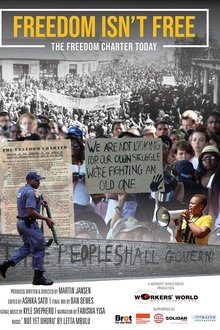
Freedom Isn't Free — The Freedom Charter Today (2018)
Since its adoption in June 1955 by the Congress movement, the Freedom Charter has been the key political document that acted as a beacon and source of inspiration in the liberation struggle against Apartheid. It was reputedly the main source that informed democratic South Africa’s liberal constitution and a constant reference point for the ruling African National Congress (ANC) and rival political parties that it spawned since 1994, all claiming the Freedom Charter’s legacy. Freedom Isn’t Free assesses the history and role of the charter, especially in relation to key political and socio-economic aspects of developments in South Africa up to the present period. It includes rare archival footage with interviews of a cross-section of outspoken influential South Africans.
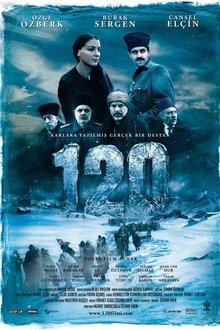
120 (2008)
During the Sarikamis Battle, the Ottoman army runs out of ammunition and appeals to the people of Van for help, who happen to have supplies. However, the First World War is on and all men are fighting at four corners of the empire and therefore can not respond to to the appeal. The young children of Van want to do something...
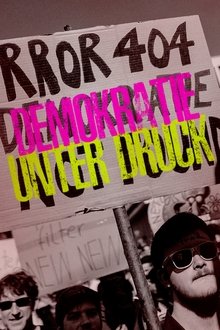
Demokratie unter Druck – Europa vor der Wahl (2019)
Thoughts of a diversity of public and private citizens on the virtues of democracy, its faults, its decadence, its fall and the rise of populism.

Gallipoli (1981)
As World War I rages, brave and youthful Australians Archy and Frank—both agile runners—become friends and enlist in the Australian and New Zealand Army Corps together. They later find themselves part of the Dardanelles Campaign on the Gallipoli peninsula, a brutal eight-month conflict which pit the British and their allies against the Ottoman Empire and left over 500,000 men dead.

The Corporation (2003)
Since the late 18th century American legal decision that the business corporation organizational model is legally a person, it has become a dominant economic, political and social force around the globe. This film takes an in-depth psychological examination of the organization model through various case studies. What the study illustrates is that in the its behaviour, this type of "person" typically acts like a dangerously destructive psychopath without conscience. Furthermore, we see the profound threat this psychopath has for our world and our future, but also how the people with courage, intelligence and determination can do to stop it.
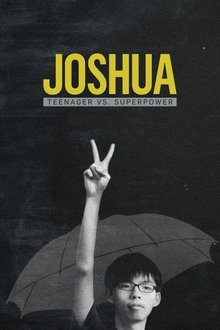
Joshua: Teenager vs. Superpower (2017)
When the Chinese Communist Party backtracks on its promise of autonomy to Hong Kong, teenager Joshua Wong decides to save his city. Rallying thousands of kids to skip school and occupy the streets, Joshua becomes an unlikely leader in Hong Kong and one of China’s most notorious dissidents.
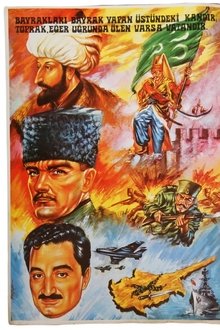
September 12: From Cyprus to Frontline (1998)
Turkish democracy got over the 27th of May and the 12th of March and set off again, but the storm did not subside and the mutual reckoning was not over. On the contrary, new fronts were opened in the country and blood began to flow like a gutter. Finally, on September 12, there was a knock on the door again. Those who came that day changed everything, everything. Nothing would ever be the same again, nothing would be the same as before.
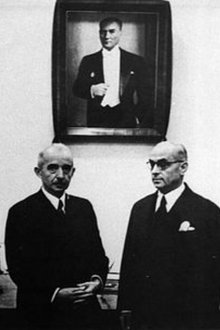
Demirkırat: Chief (1991)
The multi-party democratic regime that we take for granted in Turkey today is actually the product of 23 years of struggle and search. From the establishment of the Republic until 1946, three attempts were made to transition from a single party to a multi-party. The first of these was in 1924. Progressive Republican Party came up against the Republican People's Party that ruled the country. However, this period, when a new republic was built in pain, did not allow an oppositional voice to survive. The Progressive Party was closed after six months. Some of the rulers were imprisoned. Some of them were sentenced on death rows in the case of the assassination of Atatürk.The second attempt was made six months later, in 1930, with the Free Party. But the Free Party survived only 97 days.Finally, after another 16 years, the Democrat Party came in 1946 and the one-party regime became history for Turkey, never to return.
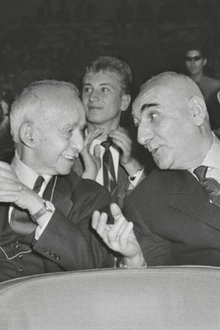
12 Mart: Rebellion (1994)
Staff Colonel Talat Aydemir... Aydemir's February 22 rebellion was the first revolutionary attempt in Turkey that faced resistance. But it was also the most dangerous... The thing the army feared most happened to him. The most undesirable possibility of the commanders in charge came true and friction broke out between the armies. At that time, the commander of 27 May, Cemal Aga, was appointed to the presidency, but the discomfort did not end. A group led by Colonel Talat Aydemir sought to intervene again. However, a part of the army, especially the Air Force, left Aydemir alone at the last moment. Talat was still strong in Ankara. In order to break this power, Prime Minister İnönü found the formula to dismiss the leaders of the rebel officers and appoint them to the East. Here is February 22, the day when these appointments will be announced to the rebels. The apocalypse was expected that day. And it broke that day...
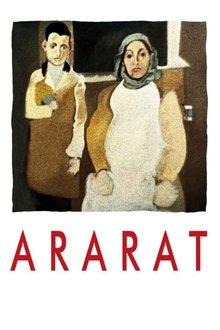
Ararat (2002)
Interrogated by a customs officer, a young man recounts how his life was changed during the making of a film about the Armenian genocide.

Demirkırat: Fight (1991)
It's easy to say... After 23 years of single-party rule, Turkey decided to try democracy once again in 1946. In every attempt up to that time, the regime had been turned upside down and given up in a short time. Now a new one was coming. Would he be able to reach the multi-party regime that has been pursued since Atatürk this time? The calendar of democracy began to run on the morning of Monday, January 7, 1946. That day was a turning point in Turkish political history. The Republic of Turkey woke up with a single party in the morning, it was now multi-party...
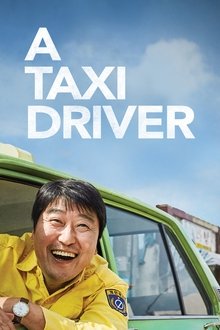
A Taxi Driver (2017)
May, 1980. Man-seob is a taxi driver in Seoul who lives from hand to mouth, raising his young daughter alone. One day, he hears that there is a foreigner who will pay big money for a drive down to Gwangju city. Not knowing that he’s a German journalist with a hidden agenda, Man-seob takes the job.
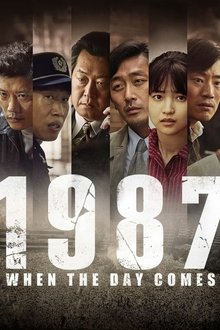
1987: When the Day Comes (2017)
In 1987 Korea, under an oppressive military regime, a college student gets killed during a police interrogation involving torture. Government of officials are quick to cover up the death and order the body to be cremated. A prosecutor who is supposed to sign the cremation release, raises questions about a 21-year-old kid dying of a heart attack, and he begins looking into the case for truth. Despite a systematic attempt to silence everyone involved in the case, the truth gets out, causing an eruption of public outrage.
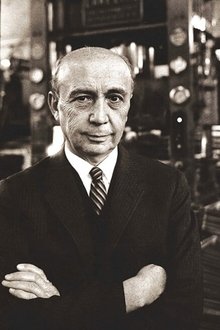
Vehbi Koç (1992)
Some people have zeros, make big bucks. He becomes rich like the wives. Everyone talks about their money. As long as they are alive, they are always talked about. But then? Then they are forgotten... The idea of talking to you about a completely different person in this documentary. His life is like a history book. It opened its eyes with the Ottomans, took its first steps with the Young Turkish Republic, grew with the growing Turkey, became a giant, but did not show its giantness. He said that if the state exists, I exist too. It has become a symbol, an institution on its own. He writes down the establishment and development process of the Turkish private sector in detail. This person's name is Koçzade Vehbi Efendi...

The Lark Farm (2007)
The Lark Farm is set in a small Turkish town in 1915. It deals with the genocide of Armenians, looking closely at the fortunes, or rather, misfortunes of one wealthy Armenian family.

Primary (1960)
Primary is a documentary film about the primary elections between John F. Kennedy and Hubert Humphrey in 1960. Primary is the first documentary to use light equipment in order to follow their subjects in a more intimate filmmaking style. This unconventional way of filming created a new look for documentary films where the camera’s lens was right in the middle of what ever drama was occurring. Preserved by the Academy Film Archive in partnership with The Film Foundation in 1998.

Girls State (2024)
What would American democracy look like in the hands of teenage girls? In this documentary, young female leaders from wildly different backgrounds in Missouri navigate an immersive experiment to build a government from the ground up.
